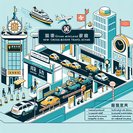
The diplomatic spat between Beijing and Tokyo is now reshaping school travel plans in Hong Kong. Victoria Educational Organisation, which runs eight elite kindergartens across the city, confirmed on 25 November that it has cancelled a week-long study tour to Tokyo scheduled for next Easter and will instead take pupils and parents to Chengdu, Sichuan.
The decision follows an updated Security Bureau advisory on 15 November that urged residents to exercise “heightened caution” when visiting Japan, citing escalating rhetoric after Japanese Prime Minister Sanae Takaichi said military force might be used if China moved on Taiwan. Although the alert stops short of imposing a formal outbound-travel warning that would trigger insurance clauses, school boards say they cannot ignore the political risk or parents’ anxiety.
![Hong Kong kindergarten scraps Tokyo study tour after government issues Japan travel warning]()
Hong Kong kindergartens and primary schools increasingly use overseas study tours to expose pupils to different cultures. Japan has been the top destination: almost 2.7 million Hong Kong residents visited last year, many on family packages that combine sightseeing with short language or STEM workshops. Travel agents report that at least six other schools are reviewing trips scheduled for the first half of 2026.
Moving the tour to Chengdu also aligns with Beijing’s call for closer people-to-people links within the mainland. Education experts note that Chengdu offers rich cultural content—from panda-breeding centres to the Jinsha archaeological site—while eliminating foreign-exchange costs and potential visa complications.
For the travel sector, scrapped or rerouted school trips represent only a sliver of total demand, but they are a barometer of sentiment. Airlines such as Cathay Pacific and Hong Kong Airlines have introduced flexible rebooking policies for Japan routes, and hoteliers in Osaka and Hokkaido say enquiries from Hong Kong groups have slowed noticeably since mid-November. If the row deepens, business-class traffic—already soft after a strong summer—could also take a hit as corporate travel managers reassess duty-of-care obligations.
The decision follows an updated Security Bureau advisory on 15 November that urged residents to exercise “heightened caution” when visiting Japan, citing escalating rhetoric after Japanese Prime Minister Sanae Takaichi said military force might be used if China moved on Taiwan. Although the alert stops short of imposing a formal outbound-travel warning that would trigger insurance clauses, school boards say they cannot ignore the political risk or parents’ anxiety.

Hong Kong kindergartens and primary schools increasingly use overseas study tours to expose pupils to different cultures. Japan has been the top destination: almost 2.7 million Hong Kong residents visited last year, many on family packages that combine sightseeing with short language or STEM workshops. Travel agents report that at least six other schools are reviewing trips scheduled for the first half of 2026.
Moving the tour to Chengdu also aligns with Beijing’s call for closer people-to-people links within the mainland. Education experts note that Chengdu offers rich cultural content—from panda-breeding centres to the Jinsha archaeological site—while eliminating foreign-exchange costs and potential visa complications.
For the travel sector, scrapped or rerouted school trips represent only a sliver of total demand, but they are a barometer of sentiment. Airlines such as Cathay Pacific and Hong Kong Airlines have introduced flexible rebooking policies for Japan routes, and hoteliers in Osaka and Hokkaido say enquiries from Hong Kong groups have slowed noticeably since mid-November. If the row deepens, business-class traffic—already soft after a strong summer—could also take a hit as corporate travel managers reassess duty-of-care obligations.





